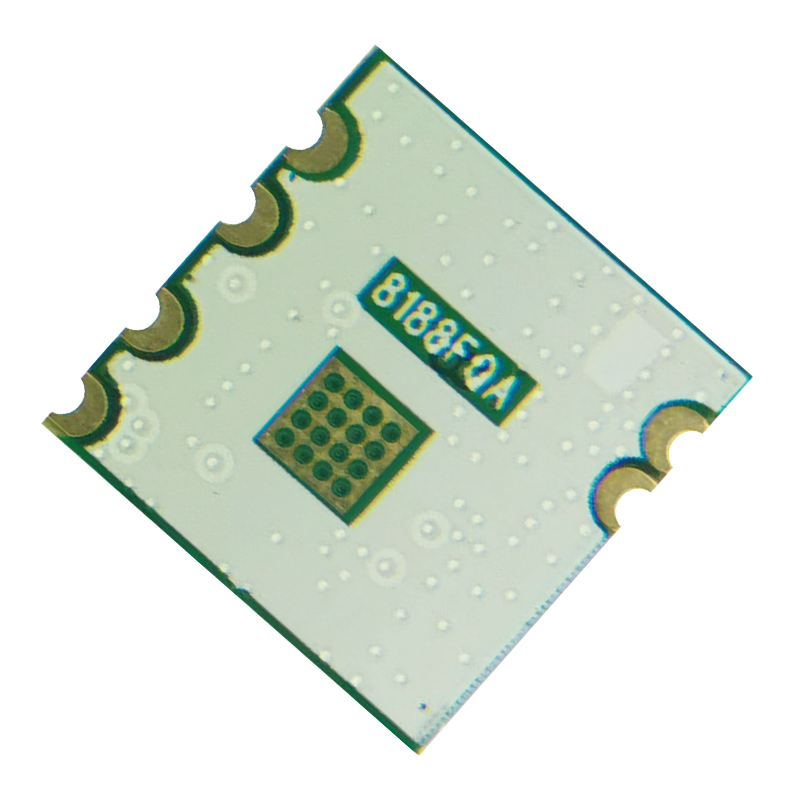The relationship between WiFi module and 5G technology With the continuous development of wireless communication technology, WiFi module and 5G technology have become an indispensable part of people's life. They play an important role in the field of wireless communication, providing people with faster and more stable network connections. However, there are some interrelationships and differences between WiFi modules and 5G technology. This article will explore the relationship between WiFi modules and 5G technology, and analyze their future development trends.

First of all, both WiFi module and 5G technology are representatives of wireless communication technology. The WiFi module is a device based on wireless local area network technology, which can realize wireless network connection. It is widely used in homes, offices, public places and other places, providing users with a convenient Internet experience. 5G technology is the abbreviation of the fifth generation mobile communication technology. It has higher transmission speed, lower delay and larger capacity, and can support more device connections and richer application scenarios.
Secondly, there are certain differences in application scenarios between WiFi modules and 5G technology. The WiFi module is mainly used in a small-scale LAN environment, suitable for homes, offices and other places. Its advantages lie in stability and reliability, and it can provide high network speed and low latency. 5G technology is mainly used in the wide area network environment and is suitable for large-scale communication needs in cities and villages. Its advantages lie in high speed and large capacity, which can support more device connections and richer application scenarios.
In addition, there are certain differences in technical standards between WiFi modules and 5G technology. The WiFi module adopts the IEEE 802.11 series standards, and currently there are mainly versions such as 802.11n, 802.11ac and 802.11ax. The 5G technology adopts the standards formulated by the Third Generation Partnership Project (3GPP), and currently there are mainly 5G NR (New Radio) standards. The differences in these standards determine the differences between WiFi modules and 5G technologies in terms of frequency band, transmission rate, and coverage.
However, WiFi modules and 5G technology are not in a competitive relationship, but in a complementary relationship. In practical applications, the WiFi module and 5G technology can work together to provide a better network experience. For example, in a home, smart home devices can be connected through a WiFi module to realize intelligent control and remote monitoring. In public places, 5G technology can provide greater bandwidth and more stable network connections to meet users' needs for high-definition video, virtual reality and other applications.
In the future, the development of WiFi modules and 5G technology will be more closely integrated. On the one hand, the WiFi module will gradually adopt higher speed and lower power consumption technologies to provide faster and more stable network connections. On the other hand, 5G technology will be further developed to provide greater capacity and lower latency, supporting more device connections and richer application scenarios. WiFi 6 and 5G NR will become the mainstream technology of wireless communication in the future, bringing people a more convenient and intelligent living environment.
To sum up, WiFi module and 5G technology play an important role in the field of wireless communication. They have certain differences in application scenarios and technical standards, but they complement each other to provide a better network experience. With the continuous development of technology, WiFi module and 5G technology will be more closely integrated to create a more convenient and intelligent living environment for people. We look forward to the future development of WiFi module and 5G technology, which will connect the world and create a better future for us.
 Trolink Joint With Tuya to Make Iot Benefit Every Family
Trolink Joint With Tuya to Make Iot Benefit Every Family
 5 Key Indicators for WiFi Module Selection You Have to Know !
5 Key Indicators for WiFi Module Selection You Have to Know !
 IOT module is the brain of smart products
IOT module is the brain of smart products
 What is the signal coverage range of the WiFi module chip?
What is the signal coverage range of the WiFi module chip?